
Portland’s street plaza program continues to see uneven progress. On the same day we saw exciting progress on the new carfree plaza coming to Southeast 37th and Hawthorne, the Portland Bureau of Transportation announced they will pull the plug on their plaza on Northwest 13th Avenue.
In a rare public statement where PBOT’s frustration seeped through the text, the agency shared yesterday they will reluctantly give up the existing carfree plaza on three of the four blocks of NW 13th between NW Everett and Irving. “Due to three businesses’ lack of compliance with design guidance and numerous site challenges, PBOT has determined that these spaces have not succeeded as Public Street Plazas,” the city wrote, citing, “Ongoing problems and community complaints with operations, over privatization of the right-of-way, and low public satisfaction were,” as reasons for the decision.
Those four blocks were turned into a public plaza with outdoor dining and a driving ban in the summer of 2020, as PBOT grappled with the spread of Covid-19 and restaurants jumped at the chance to expand seating into the open air. Now PBOT will restore two-way driving access between NW Flanders and Irving, and focus on making the block between Everett and Flanders into a fully pedestrianized space.
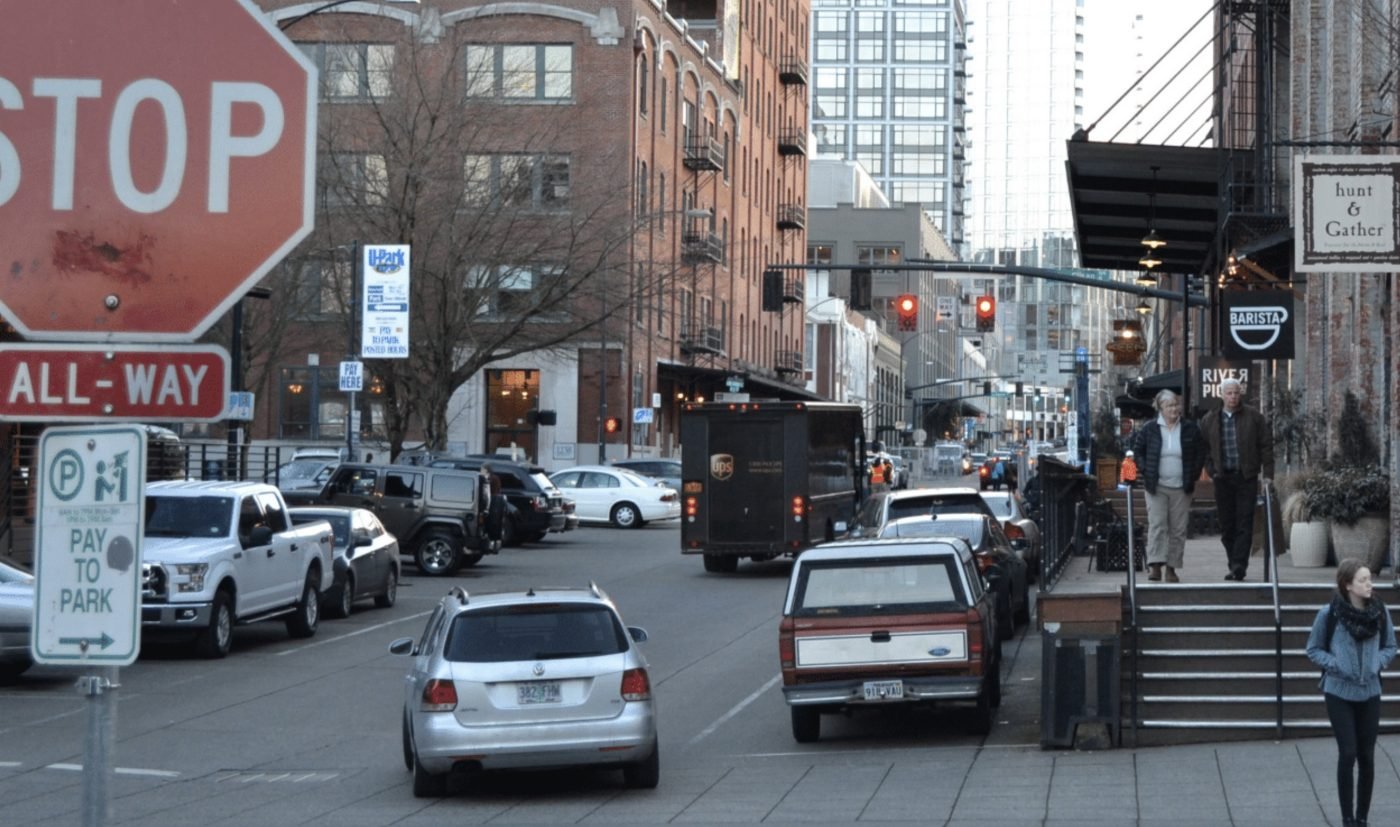
This loss of carfree space downtown is a major blow to Portlanders who dream of a city that caters to people and not their cars. NW 13th — home to the monthly First Thursday street festival — has long been eyed for its possible as a pedestrian-only corridor. In 2017, the Pearl District Neighborhood Association and Portland State University teamed up with Rethink Streets to publish an action plan for NW 13th that aimed to, “Refocus the street around the pedestrian, placing all other modes as secondary to the experience and comfort of those walking on the street.”
Ironically, PBOT themselves wanted to maintain this multi-block plaza, saying in their statement they have “regrets” about its removal. But it appears PBOT couldn’t find a policy or political path to save it.
PBOT says the seating and patio structures installed by River Pig, Papi Chulo’s and The Star, do not comply with the city’s plaza requirements. The structures were too large and walled-off to the public, instead of being open and welcoming to all. PBOT says they gave the businesses ample notice to dismantle or change the structures, but even after four deadline extensions to make it happen, the businesses took no action. “The unwillingness of these businesses to do anything to change their installations to address community concerns forced us to take steps towards enforcement,” PBOT Public Information Officer Dylan Rivera shared with BikePortland today.
With no compliance from business owners PBOT plans to fine the businesses $500 per day until the structures are removed. They will then re-open the three blocks to parking and driving for the first time since 2020.
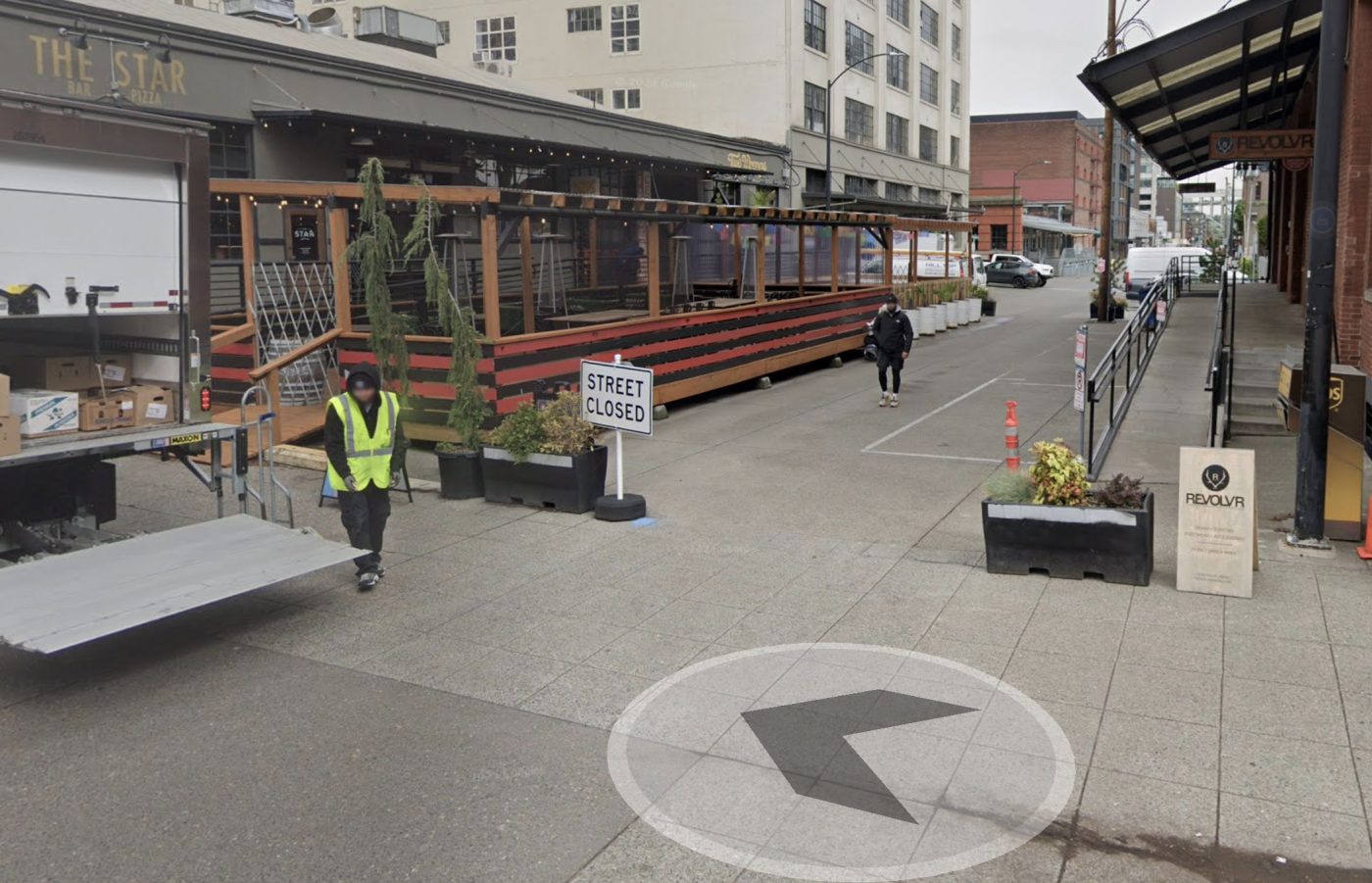

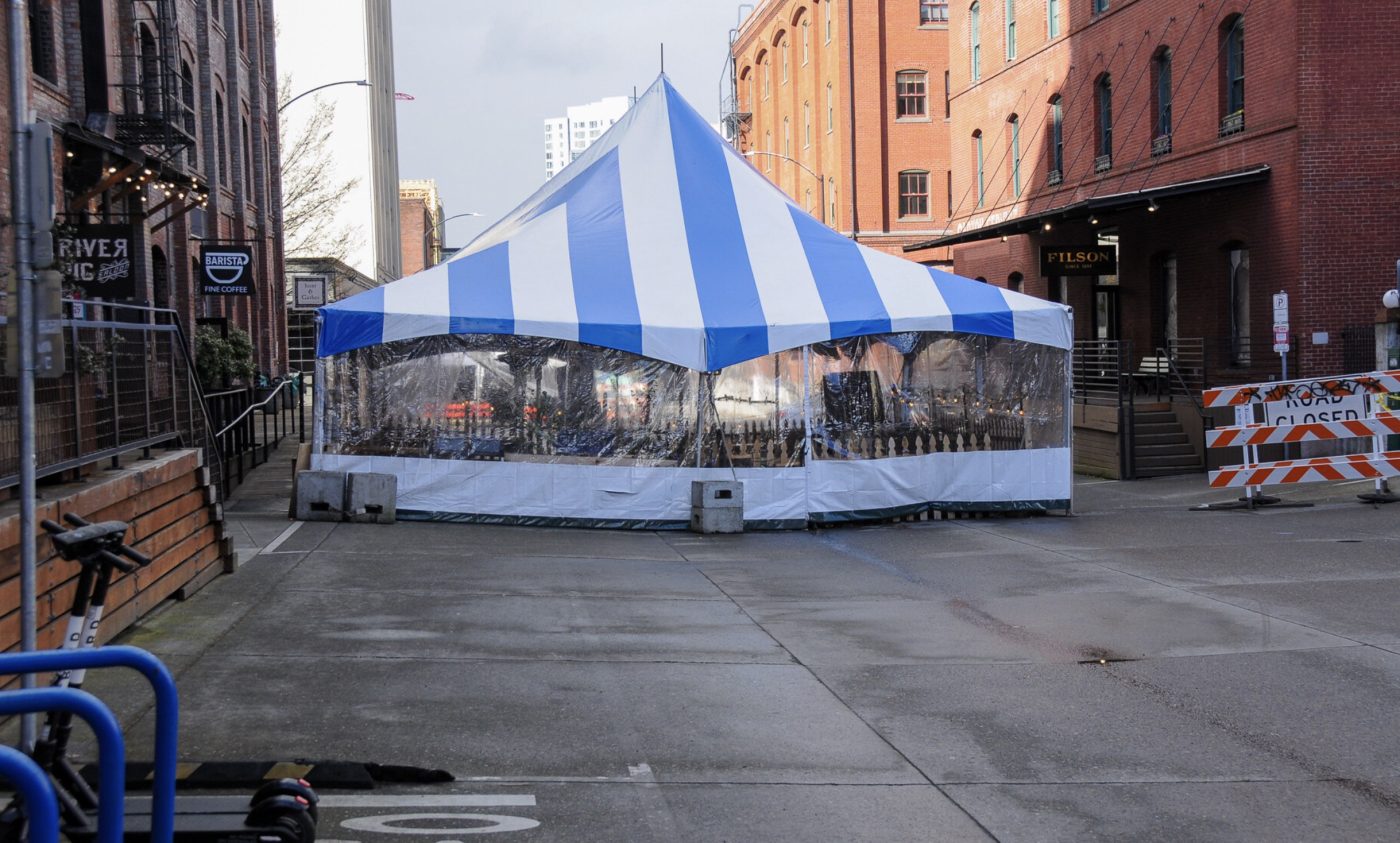
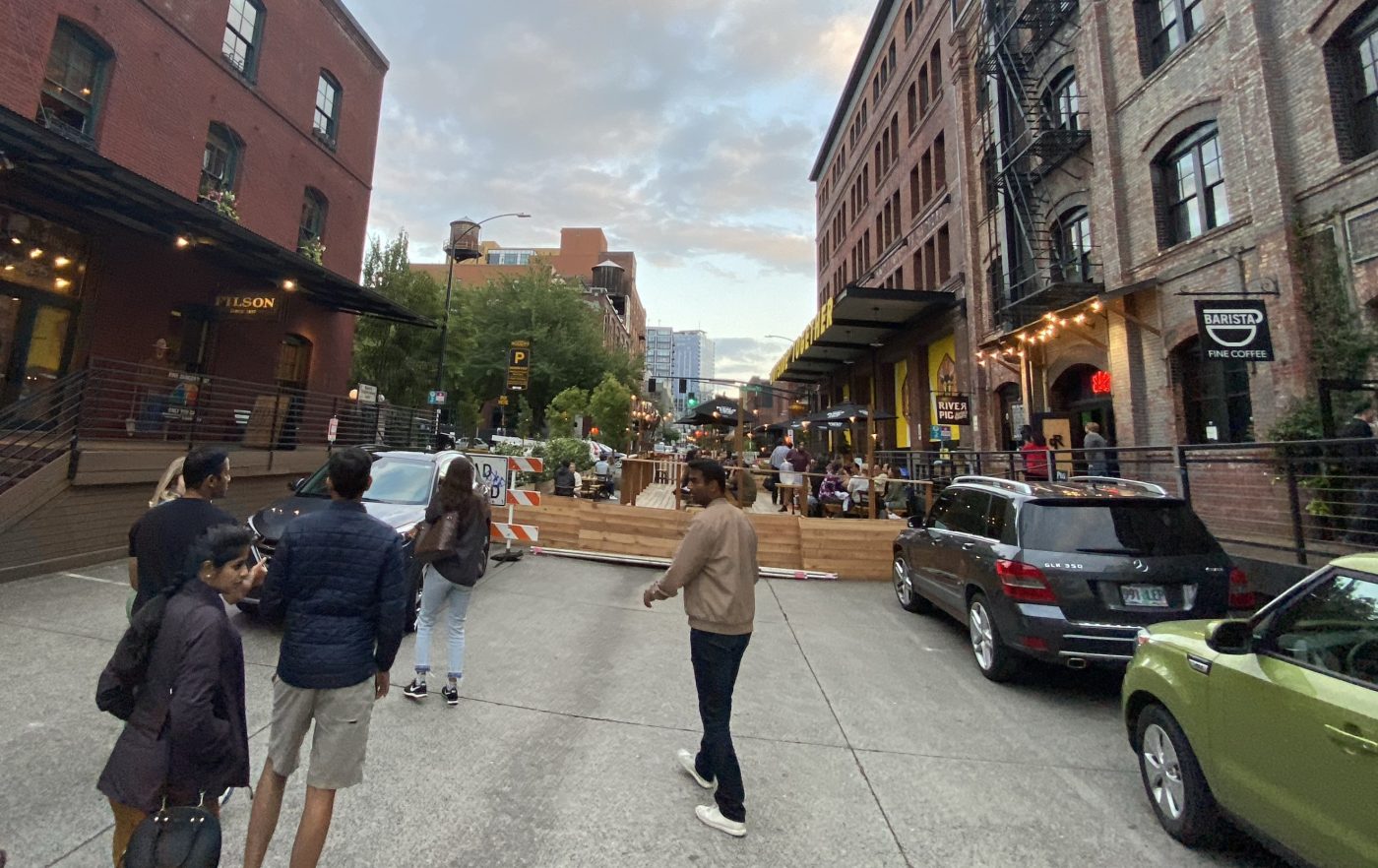
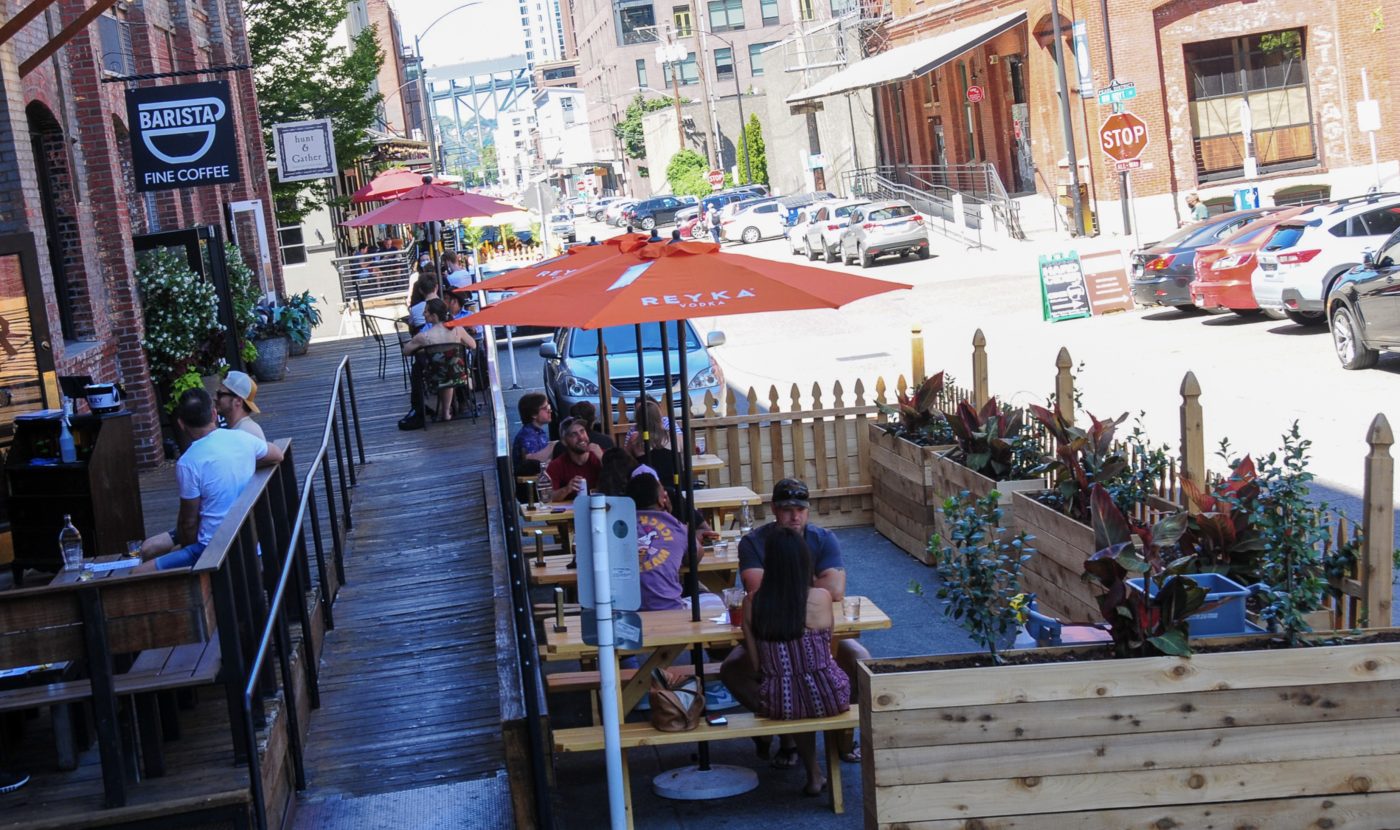
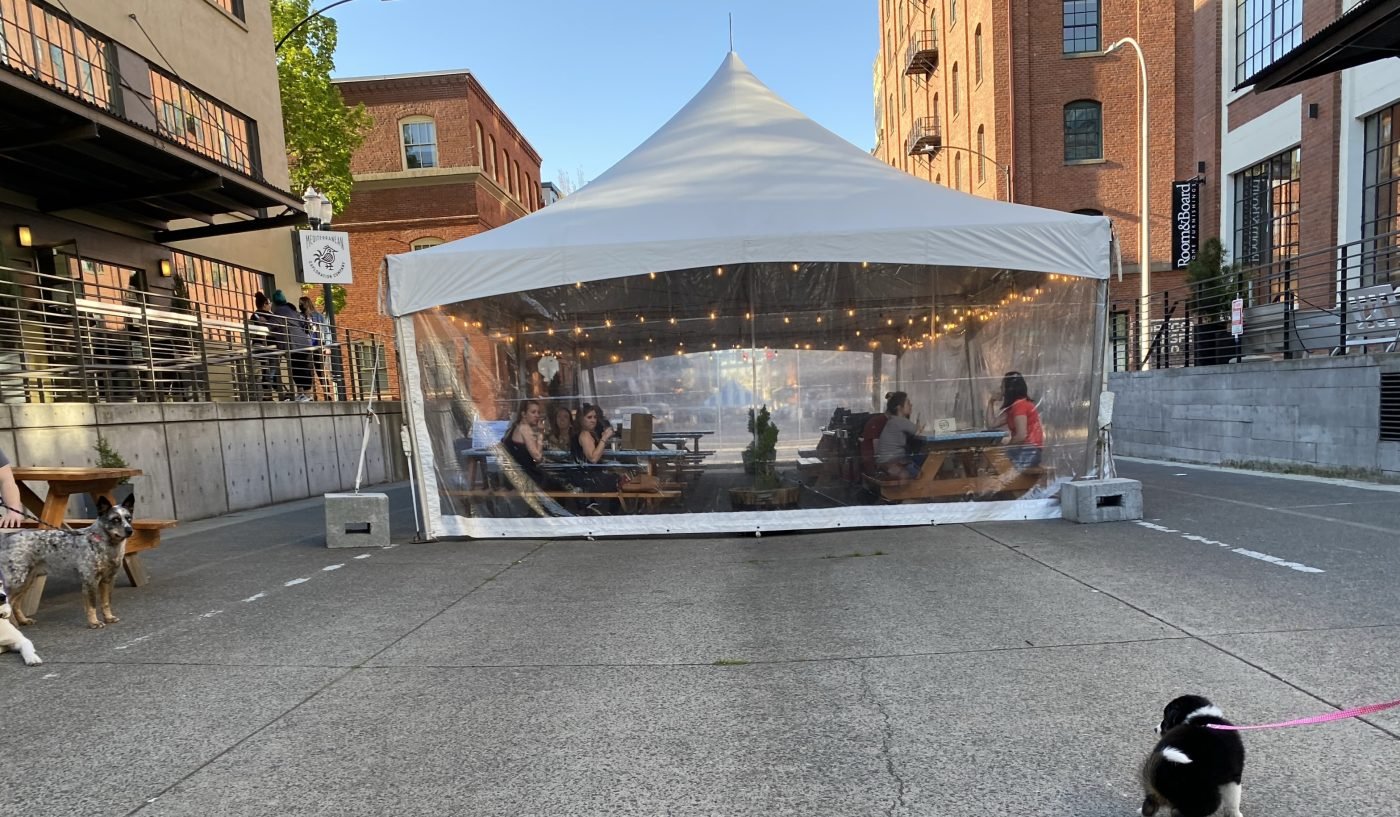
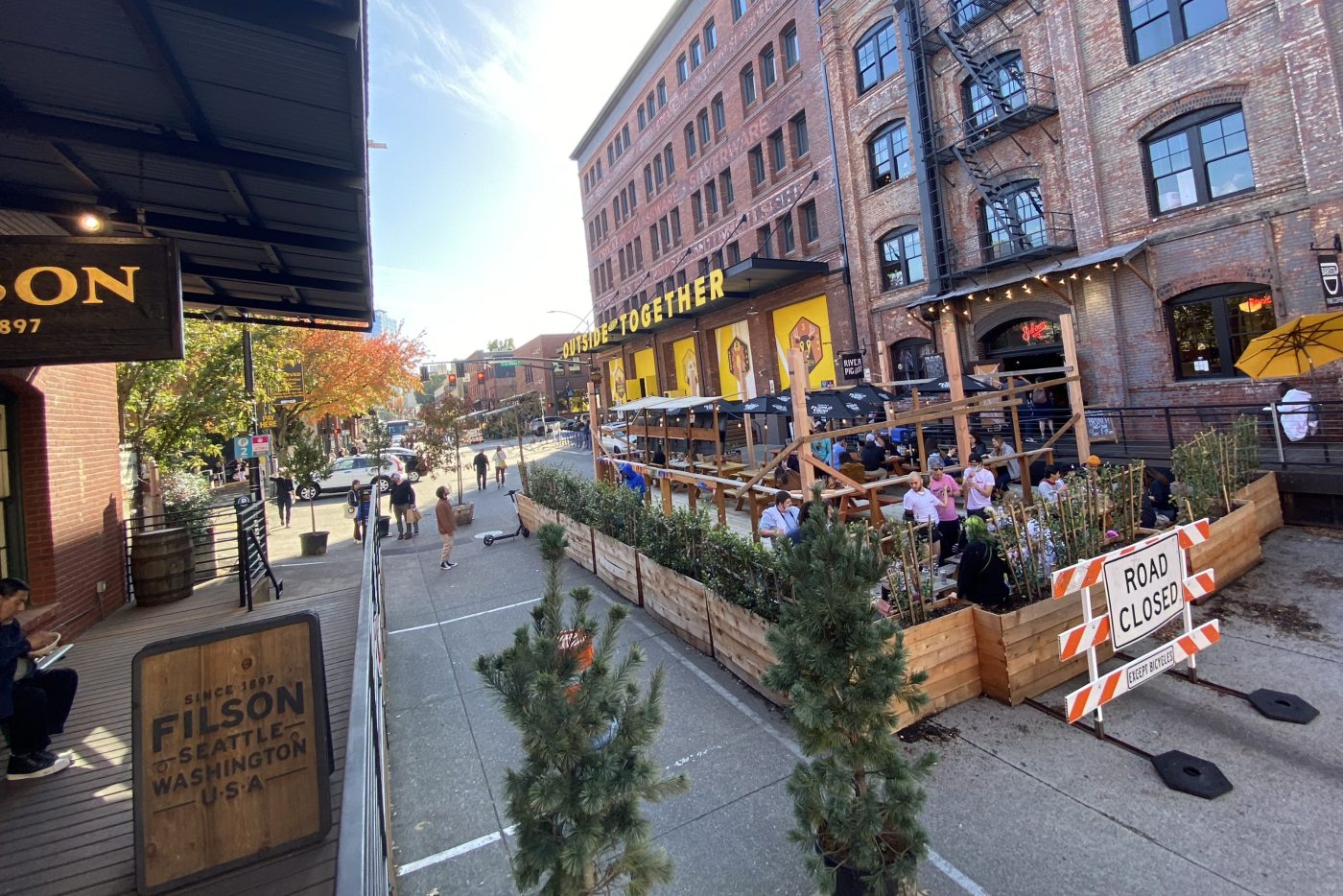
PBOT appears to have made every effort to make this plaza work. “PBOT did not take the decision to remove the NW 13th car-free blocks lightly; in fact we have been trying to avoid this situation for the past year and a half,” Rivera said.
The city has spent about two years meeting with the Pearl District Neighborhood Association (PDNA) and business owners to address issues of access, cleanliness, and safety. Despite these efforts however, the city cited a public survey they administered last year where they heard “dissatisfaction” from over 400 respondents including, “strong opposition to large private outdoor dining structures dominating public plaza space, concerns about late night noise, negative behaviors, and, at times, violence, in the plaza, as well as issues with illegal parking, blocking of emergency lanes, and lack of visibility for pedestrians.”
And similar to what spelled the demise of a carfree plaza on SE Division last month, Portland Fire & Rescue had also raised concerns about the large structures due to fire hazards and access issues.
And sadly, while PBOT said an overwhelming majority of survey respondents liked the idea of a public street plaza, they didn’t like the implementation on 13th. In their statement yesterday, PBOT included a litany of public comments that expressed opposition and concerns about the structures. Most people said the dining structures were simply too large, and instead of contributing to a public plaza, they felt more like expansions of the restaurants onto a public street.
“Outdoor dining should not be so big and closed off from plazas. Should be open and flexible like European styles as in Paris or Barcelona,” one person wrote. “The structures as they exist are imposing and make me feel unwanted as a pedestrian. It’s like I’m walking into their business area, not like they are spilling out into a public’s space.” (This tension between private businesses using public right-of-way has been a sticking point since one of Portland’s first permanent plazas was built on SW Ankeny in 2011.)
There was also strong pushback from some adjacent, non-restaurant business owners as well.
A February 2024 story in The NW Examiner reported on a tension between restaurants, who welcomed using public right-of-way for their private business; and non-dining businesses, who felt the plazas encouraged unwelcome public behavior and the lack of parking and driving access turned away customers. The president of the Irving Street Lofts homeowner’s association told the Examiner that he supports the plaza, but not its, “late-night patrons who congregate in the vicinity until and after the last bar closes at 2:00 am,” who he said are, “driven by a dining experience or alcohol and playing music and partying.” And Debbie Thomas, who owns Debbie Thomas Real Estate on NW 13th, said she was never told about the plaza and never asked for it.
Issues about the plaza appear in meeting minutes of the PDNA as far back as August 2023, when a PBOT plaza program staffer attended a meeting to share an update on “improvements to NW 13th Ave.” A March 2024 meeting referenced “several meetings relating to nuisance issues affecting Irving Street Lofts and the overall impacts of closures and restaurant encroachments on the street.” “Discussions will continue on how to best accommodate pedestrian and vehicular traffic on 13th,” the meeting minutes read. Then in November 2024, the PDNA was warned that the structures would be coming down and that a stakeholder process would begin to “reimagine the future of 13th.”
PBOT has long maintained that carfree street plazas exist only with support from adjacent business owners. In this case, it appears the nearby businesses either failed to believe in the potential of a carfree plaza, were frustrated that PBOT hadn’t figured out how to make it work better, and/or just felt like auto parking and better driving access is more important to their bottom line. Without business support, and with so many complaints from street users and neighbors, PBOT came to this unfortunate decision.
PBOT currently manages 16 street plazas and 575 permitted outdoor dining installations citywide. Just one month ago, PBOT faced the possibility of shuttering their entire street plaza program due to a lack of funding, but Mayor Keith Wilson’s proposed budget kept it alive.
As this situation on NW 13th illustrates, funding isn’t the only constraint when it comes to building world-class carfree spaces in Portland. Like other major shifts in the status quo, it will take that magical mix of political leadership, public support and neighborhood-level organizing that seems to have escaped us in the Pearl District — putting the long-envisioned dream of a 13th Ave promenade further out of reach.
For now, at least.




